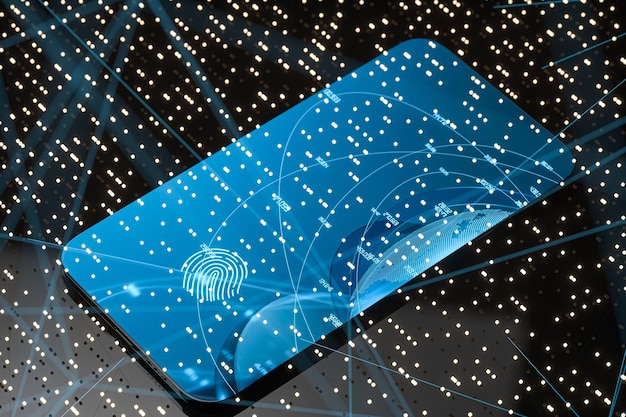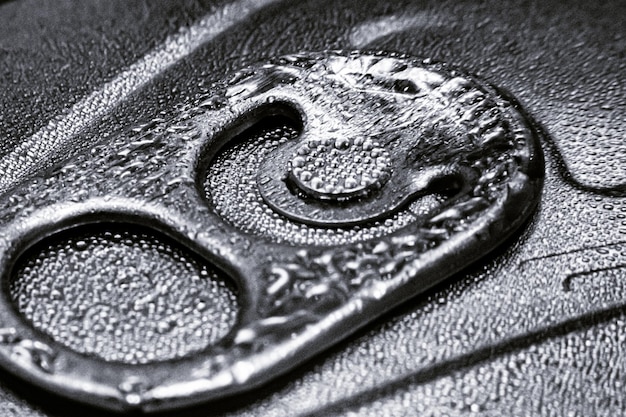Secure Your Crypto Wallet in 2025: A US Investor’s Guide

Securing your cryptocurrency wallet in 2025 requires a multi-faceted approach, combining advanced technology with proactive personal practices to protect against evolving cyber threats and ensure the safety of your digital assets.
Protecting your digital assets is paramount in the ever-evolving landscape of cryptocurrency. As a US investor, learning how to secure your cryptocurrency wallet in 2025: A step-by-step guide for US investors is not just recommended; it’s essential for peace of mind and financial security.
Understanding the Cryptocurrency Security Landscape in 2025
The cryptocurrency landscape is dynamic, with new technologies and threats emerging constantly. In 2025, understanding the current state of security is crucial for protecting your investments. This involves staying updated on the latest risks and vulnerabilities that could compromise your digital assets.
Evolving Threats in the Crypto Space
As digital wallets become more sophisticated, so do the methods employed by cybercriminals. Phishing attacks, malware, and sophisticated hacking techniques are continuously refined to target crypto investors.
Key Security Trends to Watch
Multi-factor authentication (MFA), biometric verification, and hardware wallets are becoming increasingly important. Staying ahead of these trends can significantly enhance your wallet’s security.
- Keep your software and apps updated to patch vulnerabilities.
- Use strong, unique passwords for each account, including your wallet.
- Be wary of suspicious emails, links, and attachments.
- Enable multi-factor authentication wherever possible.
Understanding the threat environment is the first step in creating a comprehensive security strategy for your cryptocurrency holdings. Staying informed and proactive is essential for mitigating risk.
Choosing the Right Cryptocurrency Wallet for Your Needs
Selecting the appropriate cryptocurrency wallet is a crucial decision that directly impacts the security and accessibility of your digital assets. US investors have a wide array of choices, each with its own strengths and weaknesses. Evaluating your specific needs and risk tolerance is essential in making this choice.
Types of Wallets Available
There are several main types of crypto wallets: hardware wallets, software wallets (desktop and mobile), web wallets, and paper wallets. Each offers a different level of security and convenience.
Hardware Wallets: The Cold Storage Option
Hardware wallets, often considered the most secure option, store your private keys offline, making them immune to online hacking attempts. They’re ideal for long-term storage of significant crypto holdings.

- Consider the reputation and security track record of the wallet provider.
- Ensure the device is PIN-protected.
- Always buy directly from the manufacturer to avoid tampered devices.
Choosing the right wallet involves balancing security, convenience, and your individual investment strategy. Thorough research and careful consideration are essential.
Implementing Multi-Factor Authentication (MFA) for Enhanced Security
Multi-factor authentication (MFA) adds an extra layer of security to your cryptocurrency wallet, making it significantly more difficult for unauthorized users to access your funds. It requires users to provide two or more verification factors to gain access, reducing the risk of a single point of failure.
What is Multi-Factor Authentication?
MFA combines something you know (password), something you have (phone), and something you are (biometrics) to enhance security.
Setting Up MFA on Your Wallet
Most reputable wallets and exchanges offer MFA options, such as SMS verification, authenticator apps, or hardware security keys. Enabling these features is a simple yet effective way to bolster security.
- Enable MFA on your crypto exchange accounts.
- Secure your email account with a strong password and MFA.
- Avoid SMS-based MFA if possible, as it’s vulnerable to SIM swapping attacks.
Implementing MFA is a proactive step in protecting your cryptocurrency assets from unauthorized access. It’s a critical component of a comprehensive security strategy.
Securing Your Recovery Seed Phrase: The Key to Your Crypto
Your recovery seed phrase, typically a set of 12 or 24 words, is the master key to your cryptocurrency wallet. If you lose access to your wallet, this phrase is the only way to recover your funds. Keeping it safe and secure is paramount.
Understanding the Importance of Your Seed Phrase
Anyone with your seed phrase can access and control your cryptocurrency. It’s vital to treat it with the utmost care and confidentiality.
Best Practices for Storing Your Seed Phrase
Never store your seed phrase digitally, such as on your computer, in an email, or in the cloud. Instead, write it down on a physical medium and store it in a secure, offline location.

- Consider using a metal seed phrase backup device for fire and water resistance.
- Store multiple copies of your seed phrase in separate, secure locations.
- Never share your seed phrase with anyone.
Protecting your recovery seed phrase is the most critical step in securing your cryptocurrency. Employing the right storage and handling practices can prevent irreversible loss.
Regularly Auditing Your Cryptocurrency Wallet Activity
Regularly auditing your cryptocurrency wallet activity is an essential practice for maintaining security and detecting any unauthorized transactions or suspicious activity. This involves reviewing your transaction history, monitoring your account balances, and verifying the integrity of your wallet settings.
Why is Auditing Important?
Auditing allows you to identify any unusual activity early on, such as unauthorized transactions or changes to your wallet settings, which could indicate a security breach.
Tools and Techniques for Auditing
Most wallets provide transaction histories and account activity logs. Use these tools to review your transactions and monitor your balances. Set up alerts for unusual activity.
- Check your transaction history regularly for any unrecognized transactions.
- Monitor your account balances to ensure they match your expectations.
- Set up transaction notifications to alert you to any outgoing transactions.
Auditing your wallet activity is a proactive measure that helps you stay informed about the security of your cryptocurrency holdings and detect potential threats before they escalate.
Staying Informed and Adapting to New Security Measures
The world of cryptocurrency is constantly evolving, with new technologies and security threats emerging regularly. Staying informed about the latest trends, vulnerabilities, and best practices is essential for maintaining the security of your cryptocurrency wallet.
Following Security News and Updates
Stay up-to-date with industry news, security alerts, and expert insights by following reputable cryptocurrency news sources, security blogs, and social media accounts.
Adjusting Your Security Practices Over Time
As new threats emerge and new security measures become available, be prepared to adapt your security practices accordingly. This may involve upgrading your wallet software, enabling new security features, or changing your storage methods.
- Subscribe to cryptocurrency security newsletters and blogs.
- Attend industry conferences and webinars to learn about the latest threats and solutions.
- Follow security experts and influencers on social media.
Staying informed and adaptable is crucial for maintaining the security of your cryptocurrency wallet in the face of evolving threats and technologies. It’s an ongoing process that requires vigilance and commitment.
Understanding US Regulations and Compliance for Crypto Investors
Navigating the regulatory landscape surrounding cryptocurrency is vital for US investors to ensure compliance and protect their investments. Understanding the relevant laws and regulations can help you avoid legal issues and make informed decisions about your cryptocurrency activities.
Current US Regulations on Cryptocurrency
The US government has been gradually developing regulations for cryptocurrency, with various agencies overseeing different aspects of the industry, including the IRS, SEC, and FinCEN.
Tax Implications for Crypto Investors
The IRS treats cryptocurrency as property, meaning that it is subject to capital gains taxes. It’s important to keep accurate records of your cryptocurrency transactions and report them on your tax return.
- Consult with a tax professional to ensure you are complying with all relevant tax laws.
- Keep detailed records of all your cryptocurrency transactions, including dates, amounts, and fair market values.
- Be aware of the reporting requirements for cryptocurrency transactions.
Understanding US regulations and tax implications is an essential part of being a responsible cryptocurrency investor. Staying informed and compliant can help you avoid legal issues and protect your financial interests.
| Key Point | Brief Description |
|---|---|
| 🔑 Seed Phrase Security | Keep your recovery seed offline and protected from unauthorized access. |
| 🛡️ Multi-Factor Authentication | Enable MFA on all accounts wherever possible for an extra security layer. |
| 🚨 Regular Audits | Check your wallet activity frequently for suspicious transactions. |
| 🌐 Stay Informed | Keep up with the latest security trends and regulatory updates in crypto. |
Frequently Asked Questions
▼
The best practice is to write it down on a physical medium and store it in a secure, offline location. Consider using a metal seed phrase backup for added protection against fire and water.
▼
MFA adds an extra layer of security by requiring two or more verification factors to access your wallet, making it significantly harder for unauthorized users to gain access.
▼
You should audit your wallet activity regularly, ideally on a weekly or monthly basis, to detect any unauthorized transactions or suspicious activity early on.
▼
The IRS treats cryptocurrency as property, meaning it’s subject to capital gains taxes. You need to keep accurate records and report all transactions on your tax return.
▼
Immediately move your funds to a new, secure wallet. Report the incident to your exchange and consider contacting law enforcement if you suspect theft or fraud.
Conclusion
Securing your cryptocurrency wallet in 2025 demands vigilance, knowledge, and proactive measures. By understanding the evolving threat landscape, choosing the right wallet, implementing MFA, and staying informed about regulations, US investors can safeguard their digital assets and navigate the crypto world with confidence.





